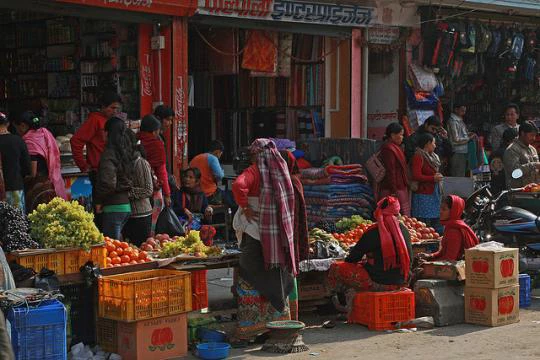Agribusiness can help Nepal's products claim a larger share of the global market (Credit: World Bank)
Take a moment and think about where you would go for the best tea, coffee or dumplings. Would a country like Nepal rank high on your list, or for that matter even be on your go-to list? For a majority of people, maybe not immediately. Yet I would argue that the country should actually rank very high on your list (in full disclosure, this post and report are about agro-processing in Nepal).
On the flip side, the question for the Nepalese and interested agro-processors comes back to, well how do we make it rank at the top of anyone’s list? The food is already above standards and extremely palatable, thus it wouldn’t be very difficult to market. And imagine the type of marketing and branding that could be used; Himalayan grown, grown in the cool climates of the Tibetan mountains, and so on.
So how or where would agribusiness come into play? It can turn a country like Nepal into one of the principal producers of fine tea, coffee, honey and even frozen dumplings (AKA momos).
Agribusiness development involves supporting a number of components including SME incubation, and value-chain development through support to farms (of varying sizes) and large-scale investments. From the development point of view, the benefits are vast and far-reaching; job creation, income generation, improved rural livelihoods, tax revenues and of course net foreign exchange gains.
And that’s exactly what encompasses an agribusiness innovation center (or AIC). It’s a one-stop shop where a range of service offerings are provided to new, budding and established entrepreneurs. Entrepreneurs are able to access training, mentoring and coaching services, facilities, market research and linkages, financing and government, industry and donor networks.
infoDev is now aiming to make the AIC a reality for Nepal. Within the past year we collected feedback from a range of stakeholders, conducted a number of workshops and completed the research and due diligence.
Stakeholders have indicated a need for mentorship and relevant business training programs. In addition entrepreneurs have noted gaps in accessing finance options and market development opportunities (branding and labeling). Stakeholders also emphasized the need for an AIC that is structured autonomously, run as a business and trusted by entrepreneurs. Based on initial modeling, we estimate that AIC services will reach over 3,300 entrepreneurs, create 970 direct jobs and approximately 2700 indirect jobs. Over 2,000 small holder farmers are estimated to benefit with an increase of US$ 2.5 million in tax revenue.
In 2011, the Human Development Report 2011 released by the UNDP, ranked Nepal with the highest Gini-coefficient in Asia and the South Asian region, i.e. Nepal has the highest income inequality in these regions. By enabling the start-up and growth of competitive, value adding businesses, in countries that already have a comparative advantage in agriculture, local jobs are created, and inclusive growth can be attained for all stakeholders along the value chain, from small-holder farmers to consumers.
The government of Nepal has also underscored the need to develop and support agriculture-based development programs. The current Agricultural Development Strategy (ADS) being finalized has internalized the concept of AICs. It’s a sector capable of producing high economic returns in a short period of time and one where large firms are willing and interested in investing. And it is an area that can make Nepalese tea, spices and other products claim a large share of international markets and trade.
So await, on your local store shelf – frozen curry momos.



Join the Conversation